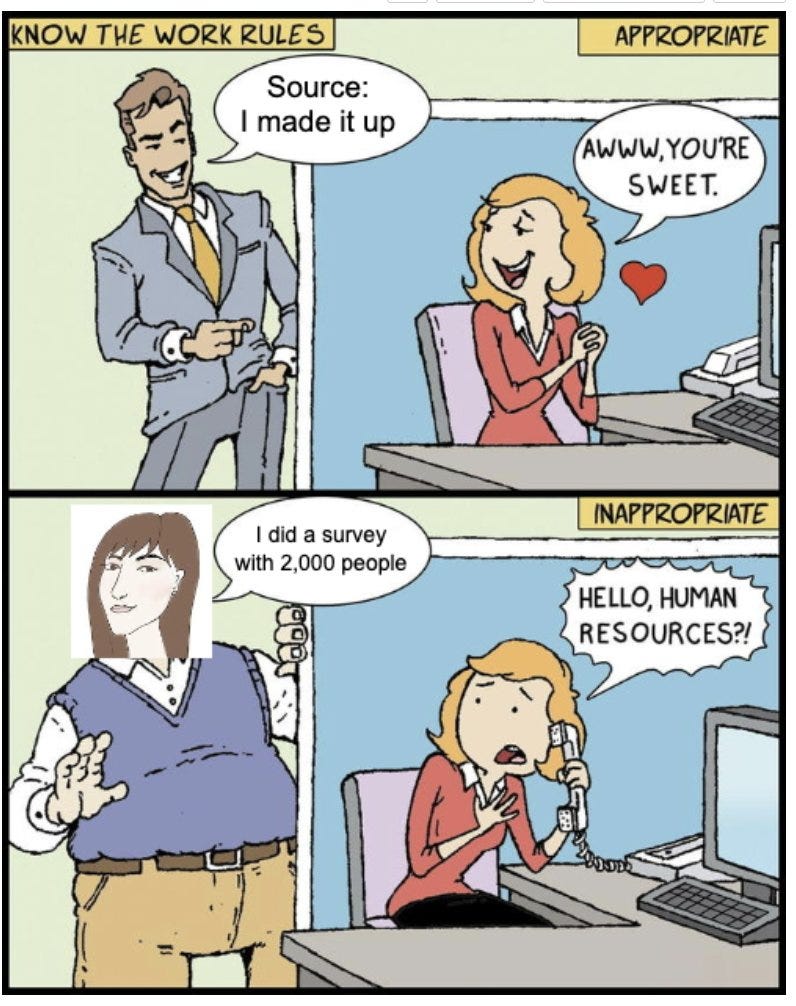Do Women Have to Lie About Their Jobs to Get More Hinge Matches?
I ran a fake dating app and changed women's jobs to see what would get them the most right-swipes.

Last week, I wrote relentlessly about sex, culminating in the following quote, of which I’m still quite proud:
I remember walking into the Museum of Sex with my husband in Amsterdam, and being inexplicably horrified that people in the 1800s were 69ing each other—certainly, millennials invented that! There’s zero chance that my ancestors were getting their lick on in the fields of rural Scotland.
Well, tough luck for anyone who’s into historic up-kilt steaminess, because I’m not writing about that this week (if you’re new here, you’ll find I write about all social dynamics including unsexy things like friendship and parenting, along with the occasional political thing) but I do have a different obsession this week, and it’s not a new one. It’s my relentless quest to prove—with surveys, interviews, and now a robust fake dating app with almost 3,000 “users”—that being educated or having a prestigious job is not a detriment to women on the dating market.
Plenty of people disagree with me even in the face of obvious statistics, including ones with far better methodology than my surveys (for example, the inconvenient fact that marriage rates are currently highest among college-educated women.) After my article yesterday, one woman told me that I was wrong and her reasoning was that women everywhere are forced to change their jobs in their dating app profiles as to not freak out men with their success. I guess I have questions. First of all, what happens when you start dating a guy and you have to tell him you lied about being a receptionist when you’re actually a lawyer? Would a woman who attended Harvard Law School be able to go through one date without bringing it up and sabotaging her entire ruse?
So anyway, thanks to all the *Trump voice* HATERS AND LOSERS taking issue with my methodology, I attempted to show revealed preferences instead of stated preferences by setting up that woman’s exact scenario: a fake dating app in the form of a survey where participants could “swipe” yes or no on the brave volunteers.
Half of the participants saw people with one variable changed—for example, I already published my findings about how men’s results changed when they were made 5 inches taller or shorter. For this article, I altered women’s jobs. I kept their photos, age and name the same, but gave some of them more prestigious or “girlbossy” jobs, and for the ones who already had such jobs, I gave them less “intimidating” roles.




